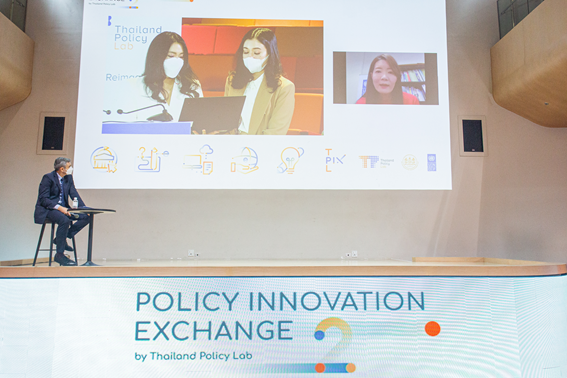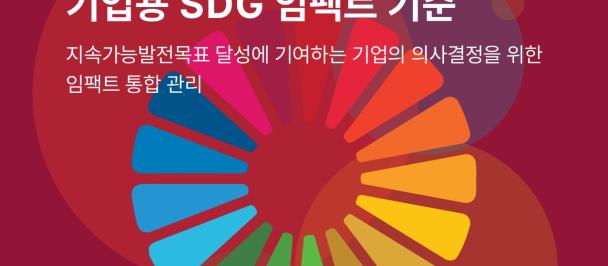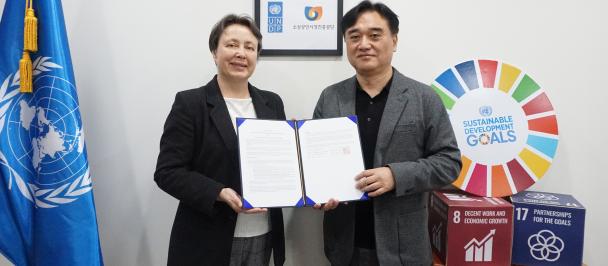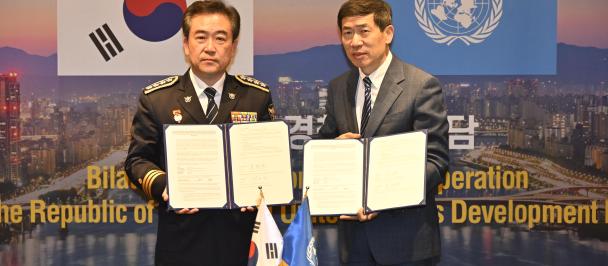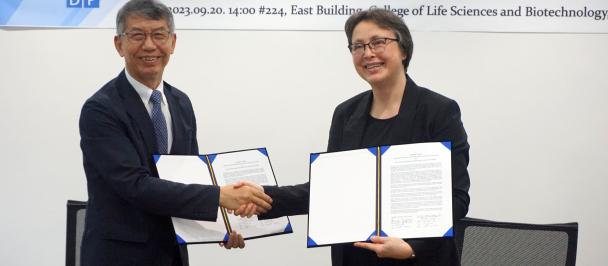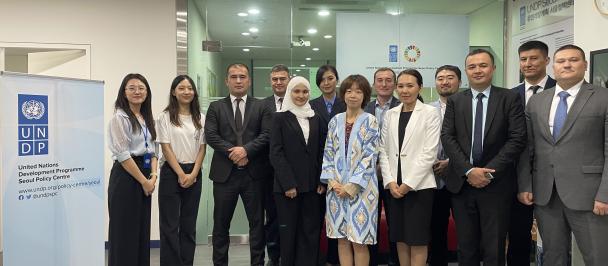As part of its outreach and collaboration with UNDP’s Global Policy Network, UNDP Seoul Policy Center (USPC) introduced a selection of people-centered digital governance schemes from the Republic of Korea (RoK) at the 2nd Policy Innovation Exchange (PIX 2) event organized by the Thailand Policy Lab (TPLAB) on 30 March 2022.
Based on UNDP’s common understanding of the crucial role of digitalization for sustainable development, USPC shared RoK’s experiences in digital governance with a focus on applying a human rights lens to digitalization.
TPLAB’s Policy Innovation Exchange is an annual knowledge-sharing event that aims to facilitate cross-border exchange of skills and best practices on policy innovation. This year, for PIX 2, five countries including RoK, Estonia, Singapore, the United Kingdom, and Thailand were represented to introduce different e-governance and digitalization initiatives. Over 1,100 participants joined this hybrid event via zoom and Facebook Live.
The event kicked off with Opening Remarks by Mr. Wirot Nararak, Deputy Secretary-General of the Office of the National Economic and Social Development Council of Thailand (NESDC), and Ms. Kanni Wignaraja, UN Assistant Secretary-General and UNDP Regional Director for Asia and the Pacific.
Ms. Ahjung Lee, Governance Portfolio Manager of USPC, spoke on the topic of ‘Digital Governance Innovation with a People-Centered Approach: Examples from Korea’. The lecture focused on the highlights of Korea’s fast-paced digitalization and how they initiated an inclusive e-governance system that better incorporates public needs. Ms. Lee first elaborated on Korea’s exceptional achievements in rapid socio-economic development and digital transformation, presenting Korea’s nationwide Wi-Fi coverage and its outstanding performance on several global indices, such as OECD’s Digital Governance Index (DGI). ICT tools are utilized in policymaking to better target citizens and provide virtual support to minority groups, such as the ‘Emergency Safety Response Service Programme’ for elderly care and Seoul Metropolitan Government’s strategy to establish a ‘Night-time Public Bus System’ based on the big data analysis of mobile usage. In particular, Ms. Lee illustrated the use of digitalization in improving government transparency by demonstrating the standardized digital system for public construction management via Seoul’s ‘Clean Construction System (CCS)’.
The panel and participants discussed the issues surrounding data ownership between the government and private corporates, and further explored the Korean government’s motivation for a more inclusive and transparent e-governance system through digitalization. Ms. Lee emphasized how public agreement on the need for open data and digital governance is key to the successful implementation of e-governance. In closing, participants agreed on the importance of people-centered digital governance based on the lessons learned from RoK’s example.
The USPC presentation can be viewed here.
* UNDP Seoul Policy Centre (USPC) shares Korea’s tested-and-proven policy tools with other countries through SDG Partnerships and UNDP’s Global Policy Network (GPN). USPC’s Partnerships provide a combination of support, including partnership development with Korean institutions, seed funding, technical assistance, and policy advisory services. As part of its partnerships promoting better governance, Korea shares the lessons learned through its experience to improve transparency and accountability, as well as sexual and gender-based violence.

 Locations
Locations